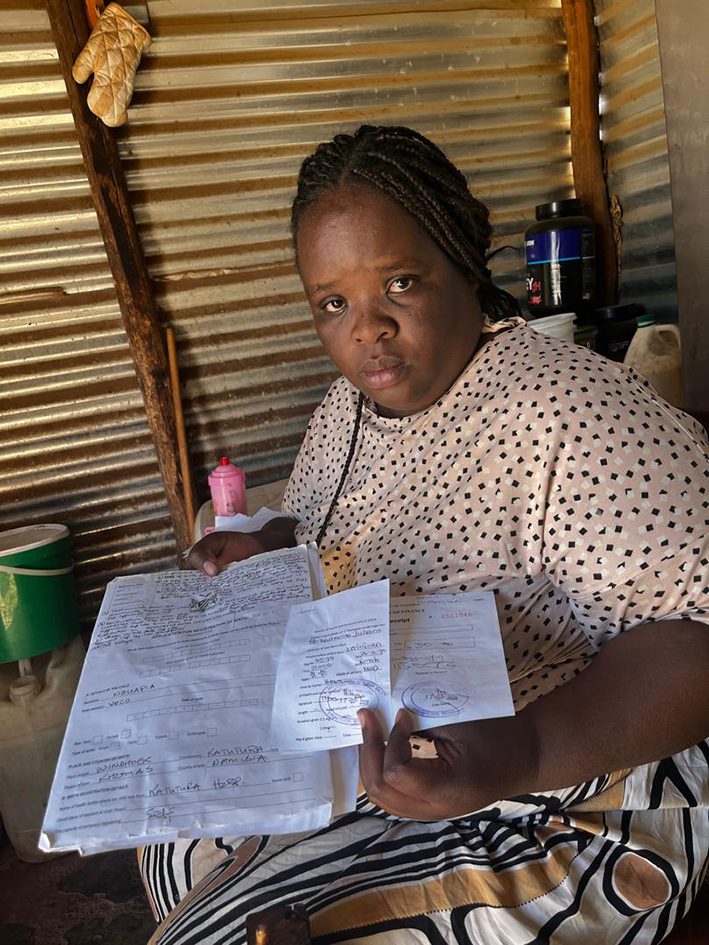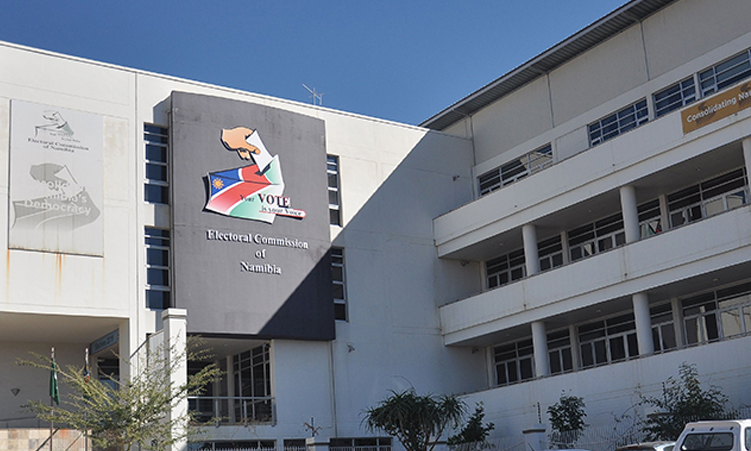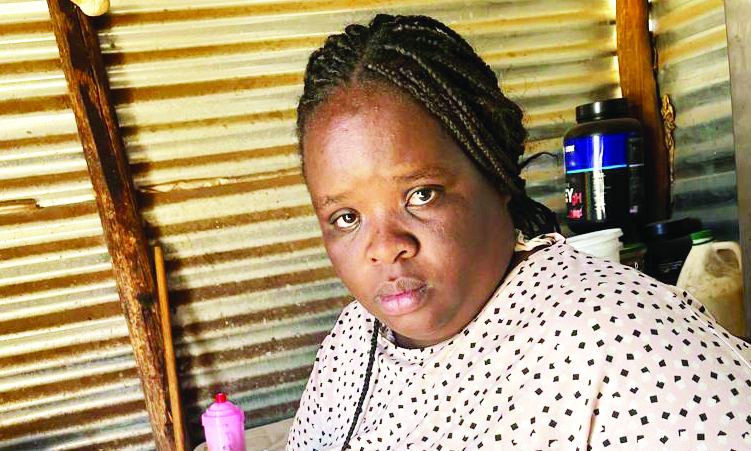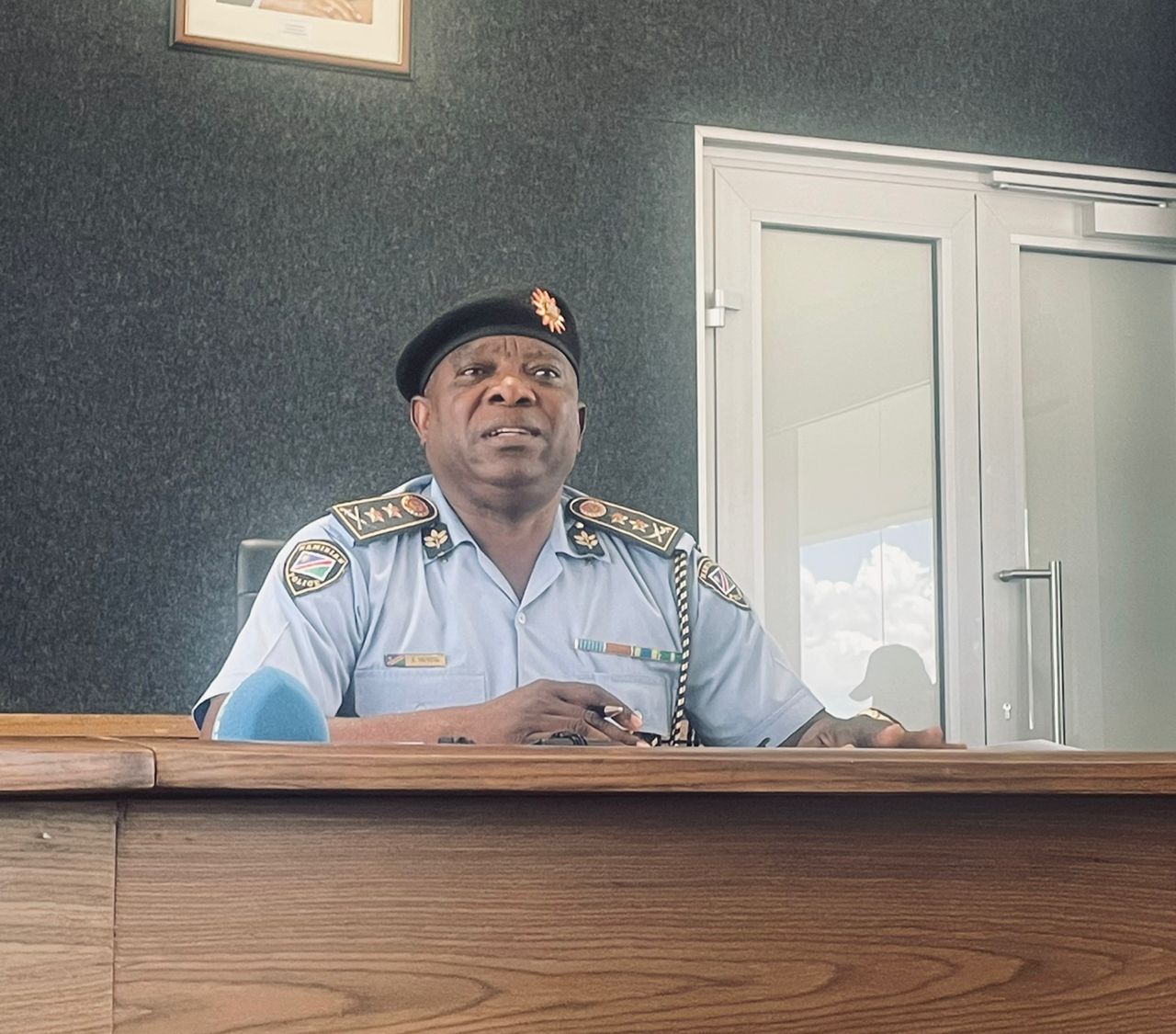Veronica Nguapia (34) grew up experimenting with cooking in her grandfather’s kitchen.
The Okondjatu villager from the Otjozondjupa region dreamt of one day owning her own catering business.
She did a cooking course at Swakopmund, but no company would hire her without a Namibian identity (ID) card.
Nguapia is one of many Namibians without national documents.
She shows The Namibian the list of documents the Ministry of Home Affairs, Immigration, Safety and Security requires before she can obtain her birth certificate.
“I want to vote, but I can’t because I don’t have a birth certificate. But why did they count me for the census when I cannot vote?” she asks.
She has made numerous attempts to obtain an ID card, but says she has been told she cannot be helped without a police declaration from her mother stating that she is indeed her mother.
This is despite a Ministry of Health and Social Services document proving her birth.
Nguapia’s mother’s name is, however, spelled differently to the name on her ID card on this document.
“I know I’m not educated as I left school, but if I want to open a business, I need an ID card to open a bank account. I am treated as if I’m not a citizen of this country,” she says.
“My children don’t have birth certificates because of me. I want to get my ID so they don’t suffer like me,” she says.

Life for Munee Munyandi (38) without an ID document has caused him sleepless nights.
Munyandi says he was traditionally adopted by his uncle after his mother died when he was nine years old.
His mother never obtained his birth certificate.
“I don’t know who has her death certificate, and the man who raised me doesn’t want to give me a declaration,” he says.
In the previous election, he voted by using his baptism card, but the requirements for this year’s voters’ registration has changed.
He says when he gets a job, his salary is paid into someone else’s bank account, and is often stolen from him.
“I can’t open my own bank account since I don’t have an ID card,” he says.
Vakauana Kandando (18) will not get to experience holding her voters’ card in her hands for the first time this year.
“I’m feeling drained without having an ID card, as all my friends have ID cards,” she says.
Kandando’s birth certificate was never registered on the home affairs ministry’s system, meaning she cannot obtain an ID card.
“We took the original copy of my birth certificate, but they could not give me my ID because the birth certificate was not on their system,” she says. “They told me to go back to Katutura Intermediate Hospital for the proof of birth that comes with the hospital passport.”
Home affairs ministry spokesperson Margaret Kalo says the ministry is determined to ensure that every citizen receives their national documents through its mass registration campaign.
She says having national documents like an ID card and birth certificate are important to be able to register to vote.
“Those who have no documents should go to the nearest home affairs or registration point during the mass registration that is currently underway in all 14 regions and constituencies, and ask for the checklist of what they should bring,” she says.
The spokesperson says those whose birth certificates are not appearing on the ministry’s system should bring certified copies of their birth certificates and a declaration from their parents.
“ . . . and they should bring certified copies of their ID cards and both parents’ ID cards,” she says.
“And the parents should make a declaration at the police stating they are the parents of the applicant. We will then update the system and the client will be issued with their birth certificate on the spot,” she says.


Kalo says guardians should obtain a police declaration stating they are the applicant’s guardian.
“Furthermore, the applicants need to go through the Ministry of Gender Equality, Poverty Eradication and Social Welfare so the ministry could locate their parents,” she says.
“In the event where the parents are dead, a death certificate should be provided,” she says.
Kalo says the ministry’s mass registration campaign will conclude on 30 July.
The Electoral Commission of Namibia (ECN) has so far registered 800 000 eligible voters during its fourth general registration of voters exercise, which started on 3 June and will end on 1 August.
Spokesperson Mulauli Silikua says registration requires the replacement of the current national voters’ registration cards.
He says the electoral body has targeted 1,7 million eligible Namibians, according to the Namibia Statistics Agency.
“The GRV exercise takes place every 10 years and provides for the total registration of all eligible voters, regardless of whether they had registered as voters before or not,” Silikua says. “To register as a voter, the applicant must meet the following requirements: they must be a Namibian citizen, must be above 18 years, and must be able to provide proof of identity.”
He says prospective voters should provide a Namibian ID card, or and old Namibian ID card and valid green Namibian passport.
“Or a Namibian citizenship certificate together with a birth certificate of any other country and sworn statements by two registered deponents,” he says.
“A Namibian birth certificate and sworn statements by two registered deponents, or a Namibian birth certificate and a valid Namibian driving licence.”
Silikua says in terms of proof of residency, citizens need to provide a municipal or phone/internet services account or a lease agreement dated between May 2023 and May 2024 to show they have lived at a certain address for 12 consecutive months.
Alternatively, eligible voters could make a statement under oath at registration points.
Stay informed with The Namibian – your source for credible journalism. Get in-depth reporting and opinions for
only N$85 a month. Invest in journalism, invest in democracy –
Subscribe Now!






